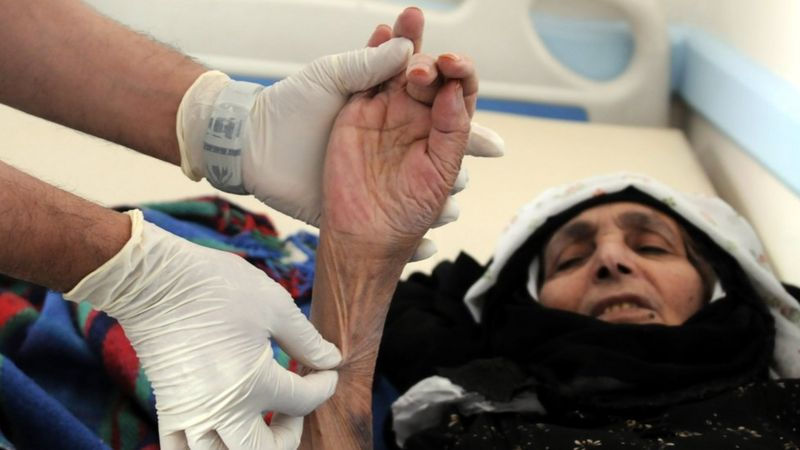Fears of a cholera outbreak in Yemen
- المصدر: فريق تحرير يمن واتشر
- Dec 17, 2023
- 2 min read
According to Oxfam, 1,336 suspected cases and 11 associated deaths were reported between 2 October and 3 December.

Oxfam has warned of a cholera outbreak in Yemen if essential precautions are not taken quickly. According to a news release from the organization, cholera cases have been reported in six governorates in southern and eastern Yemen, as well as two governorates in the north, in recent weeks.
Between October 2 and December 3, 1,336 suspected cases and 11 associated deaths were reported. Deaths from cholera have been reported in the country's south. Because of the absence of reporting in many locations, the true numbers are likely to be significantly higher.
Cholera is highly contagious, especially in crowded locations, and is caused by a lack of clean water and sanitation. migrant groups in Yemen have been disproportionately affected, reflecting the increased difficulties they confront in accessing clean water and health care.
The deaths raise concerns about a possible return to cholera levels not seen since the 2016-2021 pandemic, which saw 2.5 million illnesses and 4,000 deaths. Yemen accounted for 93 percent of all cholera cases worldwide in 2019.
Oxfam urges the international community to enhance funds for life-saving aid in Yemen, particularly for health, resilience, and livelihood programs, as well as attempts to negotiate a durable and comprehensive peace.
To effectively combat cholera in a poor, war-torn country, a holistic approach that meets the difficult problems posed by this dual disaster is required. When establishing strategies and interventions, resilience is essential. Strong cooperation between humanitarian players, local authorities, and international organizations is required to ensure the construction of effective communication channels despite difficult circumstances. This combined effort will aid in the deployment of preventive measures such as clean water supply systems, sufficient sanitation infrastructure, and hygiene awareness programs, all of which are critical components of containing a cholera outbreak.
Investing in effective monitoring techniques with rapid detection capabilities is critical for identifying possible cases and launching immediate reaction measures. These mechanisms should include effective reporting systems at local and national levels, as well as real-time monitoring using technology advancements such as mobile applications or SMS-based alarm systems.
Furthermore, in conflict situations, it is critical to improve health capacity within affected areas. Patient outcomes can be considerably improved by strengthening healthcare facilities through the provision of adequate medical supplies and training for healthcare personnel to diagnose cholera symptoms. Additionally, addressing the underlying social determinants of immunological vulnerabilities, as well as engaging in education projects that promote sanitary practices among children, is crucial to assuring long-term preventative measures.



Comments